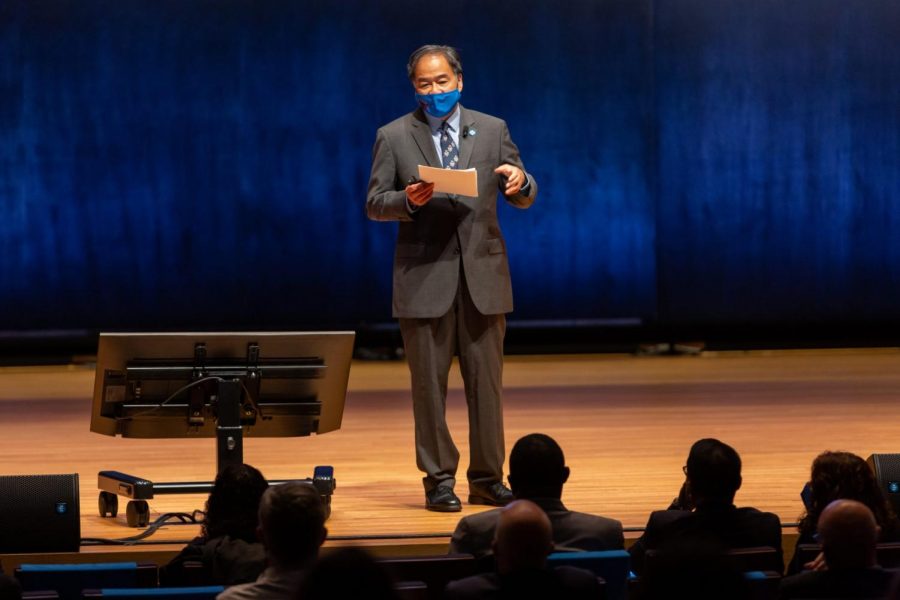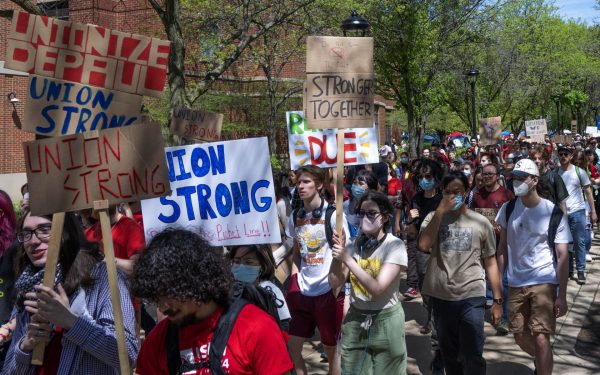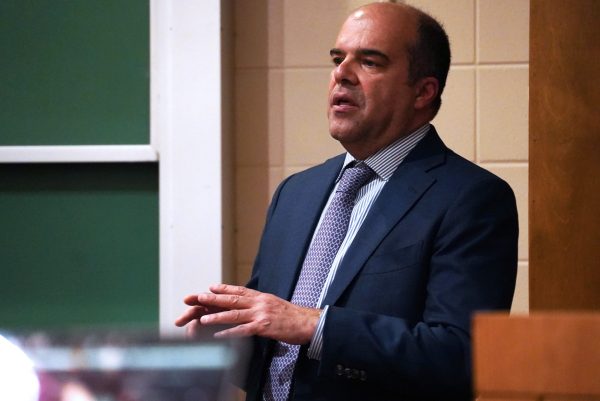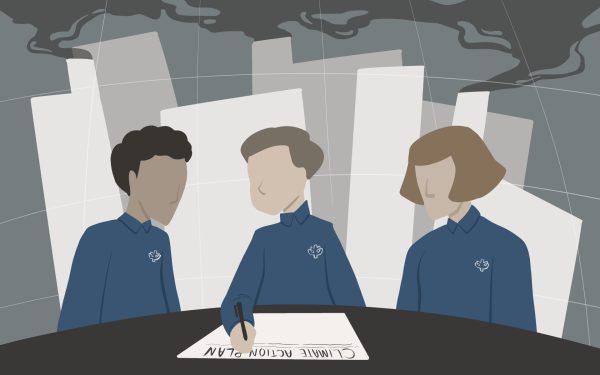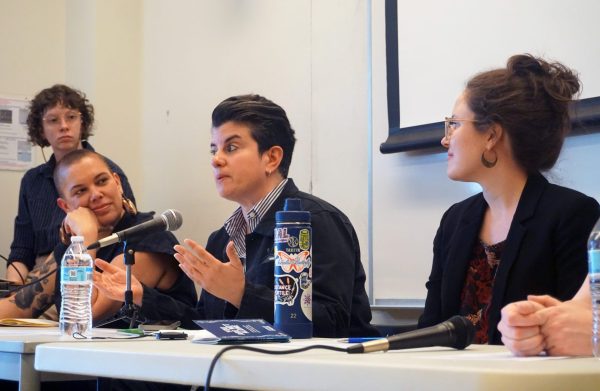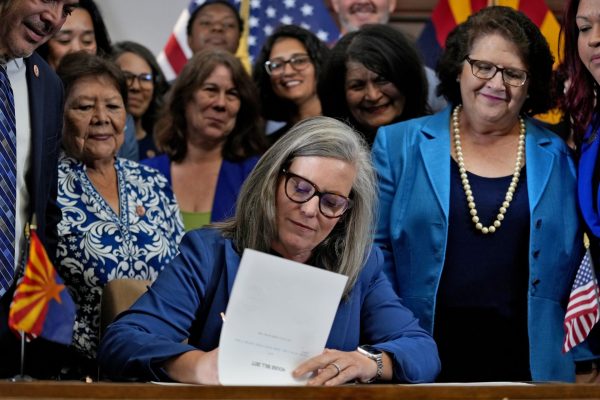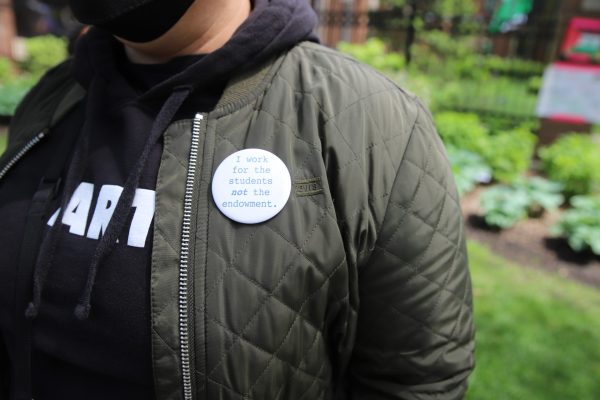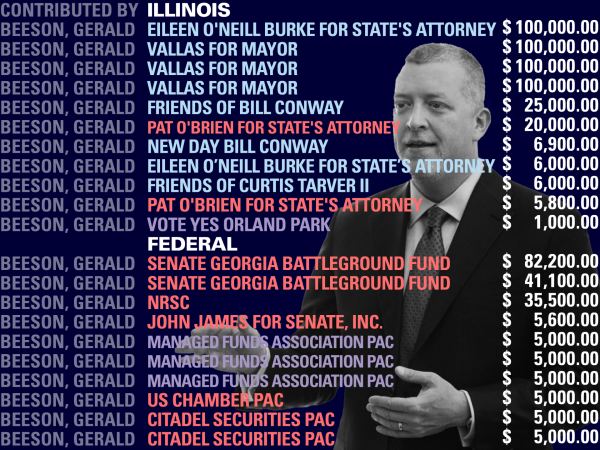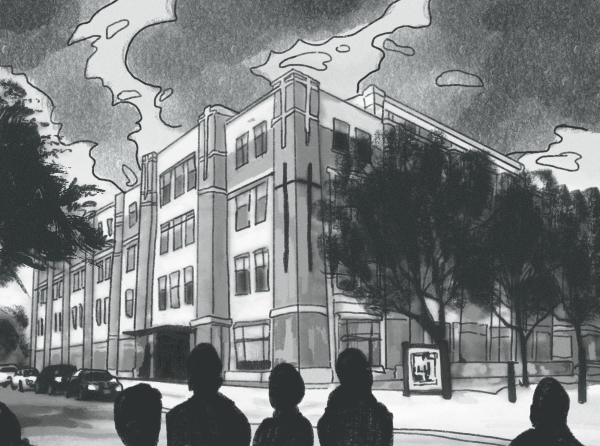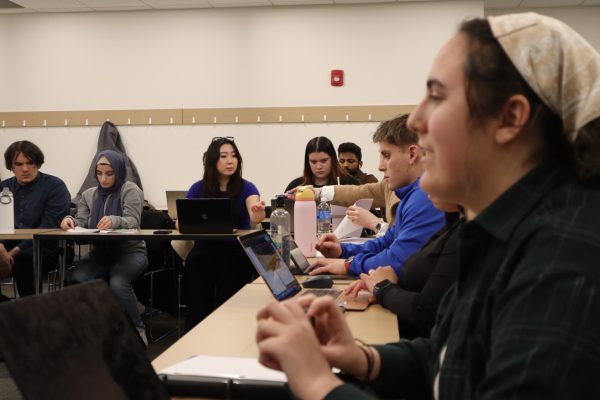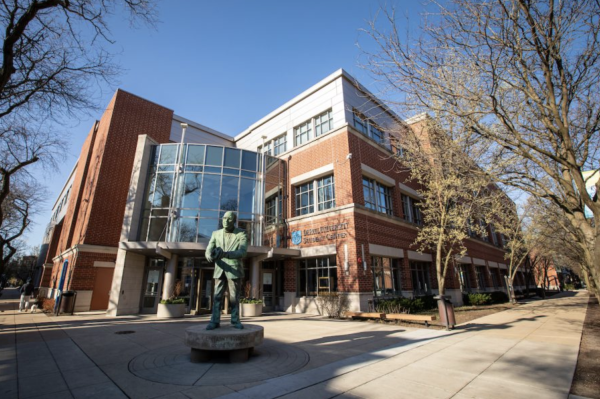In State of the University, faculty pushes back on Esteban’s assessment of progress
Courtesy of DePaul University/Randall Spriggs
DePaul President A. Gabriel Esteban addressed faculty and staff at the State of the University address on Thursday morning, offering messages of hope and progress after the pandemic disrupted a year and a half of university operations. After his speech, questions from faculty and staff revealed that the repercussions of the pandemic left lingering concerns about morale and enduring burnout.
“We’ve all been through a lot this last year and a half,” Esteban opened. “And I can’t tell you how pleased and happy we were to see students back on campus.”
The address was held in DePaul’s School of Music and included a livestream for those who couldn’t attend in person. Due to restricted technological capabilities, however, virtual attendees could not participate in the question and answer portion of the event.
When Esteban assumed his role as president in 2017, he released his six-year plan for the university. Now that he will be stepping down in June 2022, he assured DePaul that he will stay committed to the progress of the university for the duration of his term.
“We have a lot left to do together. We have made great progress in our strategic plan,” Esteban said. “And we have to keep the momentum going.”
It’s been three years since Esteban’s strategic plan, Grounded in Mission, was implemented and he highlighted a few points from each of the six areas: mission, diversity, student success, access, academic excellence and fiscal strength.
DePaul expanded its diversity, equity and inclusion training, known as the BUILD training initiative. This year, 867 faculty and staff participated in the training, a 547 percent increase from the previous year.
DePaul also launched Future Forward last year with 350 students initially involved in the program.
“It’s an intentional support model that engages peers, student mentors, professional staff and resources that helps students think about their future,” Esteban said.
The program is designed to increase the student retention rate and will be expanded this year to help sophomores who are new to campus.
For freshman, Esteban noted that DePaul will try to extend the Chicago Quarter mentorship program relationship beyond the fall quarter. The pilot program this year will expand that mentorship into the winter and spring quarters.
After a year and a half of virtual learning as a result of the pandemic, Esteban said that flexibility is important in ensuring student success.
“And offering flexibility in terms of modality is one way to be student-centered,” Esteban said.
This year, DePaul offered a new modality called Flex. There are 150 Zoom-enabled and tri-modal classrooms across both campuses that allow students to attend classes in person or over Zoom.
When the question and answer portion began, faculty and staff revealed their concerns about exhaustion and morale.
Victoria Van Kirk, staff council president and associate director of housing, asked what the university will do to help tired and burned out staff now.
Van Kirk added that she’s interested to see how many staff members didn’t utilize their “stress relief” days because the stress of missing work was greater than the stress felt at their jobs.
DePaul’s stress relief program was implemented for full-time, benefit-eligible employees. The program allowed DePaul employees two full days off and can not be rolled over to the next calendar year.
Esteban responded that they are trying to find other ways to aid staff that are experiencing these high levels of exhaustion. Right now, he said they can offer stress relief days and they are willing to work with the Staff Council to find other things they can do to help.
Carolyn Vos, assistant director of institutional technology at the Center for Teaching and Learning, also brought up the problem of staff morale. Vos asked if there was a possibility to trade in vacation days because it’s hard to take the time off because of the demands of her job.
Sherri Sidler, executive vice president and vice president for finance, committed to look into the feasibility of employees rolling over more paid time off hours than what is currently allowed.
Esteban and his cabinet emphasized that they want their staff to be able to take a break when they need it in order to fight burnout.


